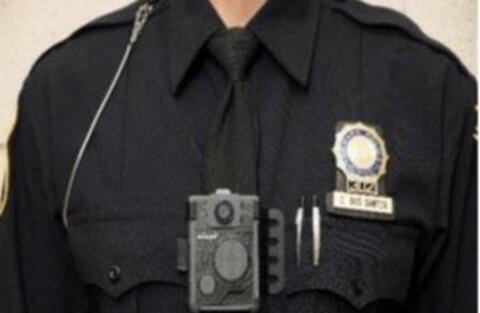Recognizing the vital importance of transparency in police-community relations, Attorney General Gurbir S. Grewal today announced a new policy that – pending approval by the Judiciary – will make body- and dash-camera videos of police deadly force incidents subject to public release, following a formal request, once the initial investigation of the incident is substantially complete, typically within 20 days of the incident.
“Law enforcement executives and agencies across New Jersey are committed to improving public trust through increased transparency and accountability,” said Attorney General Grewal. “They work tirelessly every day in this regard and with support from the Attorney General’s Office, many are now using body- and dash-cameras as tools to promote mutual accountability, gather evidence and protect their officers. This policy not only makes good on the promise of transparency and accountability embodied in these devices, but also reaffirms our understanding that only when there is trust in police-community relations will people have confidence in the fair administration of justice and will officers be able to perform their difficult jobs effectively.”
“By providing an objective witness to critical incidents, body-worn cameras and dashboard cameras have increased public confidence in police, while reducing unfounded complaints against officers,” said Director Elie Honig of the Division of Criminal Justice. “This new directive strikes the right balance in use-of-force cases by allowing witness interviews to be completed without danger of taint from public airing of video footage, while ultimately recognizing the public’s strong interest in this information.”
The directive seeks to provide guidance to prosecutors and law enforcement agencies in light of the New Jersey Supreme Court’s 2017 decision in North Jersey Media Group v. Lyndhurst, which makes such footage potentially available to the public upon formal request. But because the Lyndhurst decision and the directive both implicate a New Jersey Supreme Court Rule (Rule of Professional Conduct 3.6), which the Court has said generally prohibits public release of evidence in a pending criminal matter, the Attorney General has sought clarification from the Court’s Advisory Committee on Professional Ethics on whether releasing lethal-force videos under the directive would comply with the rule. The directive will take effect if and when the Advisory Committee determines that it complies with the Court Rule.
Attorney General Directive 2018-1 provides that in any case where a police officer uses force resulting in death or serious bodily injury – or where a firearm or other deadly force is used without injury – and video footage of the incident is captured by a body-worn camera or dashboard camera, the investigating law enforcement agencies will presumptively make the video available, upon formal request by a member of the public or media, once the initial investigation of the incident is substantially complete.
While determination as to when the initial investigation is substantially complete is left to the discretion of the County Prosecutor – or Director of the Division of Criminal Justice in cases investigated by the Attorney General’s Office – the initial investigation will typically be deemed substantially complete after principal, material eyewitnesses have been interviewed and the most relevant physical and documentary evidence has been gathered. Generally this should occur within 20 days of the incident.
In cases where it takes more than 20 days to substantially complete the initial use-of-force investigation, the County Prosecutor or Director may decline to release the video footage, but must document the reasons that additional time is necessary and estimate when substantial completion will be achieved, submitting that information to the Attorney General or a designee within the Attorney General’s Office.
Before releasing a deadly-force recording, prosecutors are directed to consult with persons appearing in the video footage or their families in the case of decedents. Where release of the video would unduly compromise the safety or privacy of any person, including any law enforcement officers, the prosecutor may seek approval from the Attorney General’s Office to postpone or decline release of the video. In other cases, the released video footage may be digitally modified to obscure the identity of a person, where that person’s identity has not been disclosed, provided the editing does not conceal any actions by a person constituting a use of force.
In New Jersey, investigations of police-involved shootings and other deadly force incidents are directly overseen by the Attorney General, who acts as an independent prosecutor in such matters. Specifically, these investigations are governed by an Attorney General directive that establishes detailed procedures and safeguards to ensure independent and impartial investigations. With respect to body-worn cameras, the Attorney General’s Office has issued a statewide policy establishing guidelines for deploying such devices for those agencies that elect to deploy them. The Attorney General’s Office also has provided over $4.5 million to enable the New Jersey State Police and other police departments across New Jersey to equip their officers with body cameras.
“While we have statewide policies in place to guide police use-of-force investigations, we are currently in the process of examining what further safeguards are needed, what reporting mechanisms are used, and how the information is reviewed,” said Attorney General Grewal. “To this end, we are consulting with law enforcement executives, community leaders and advocates on these issues. Together we will explore how we can enhance accountability, cooperation and trust in police-community relations.”
Directive 2018-1 is posted with this press release on the Attorney General’s website at www.njpublicsafety.com.
